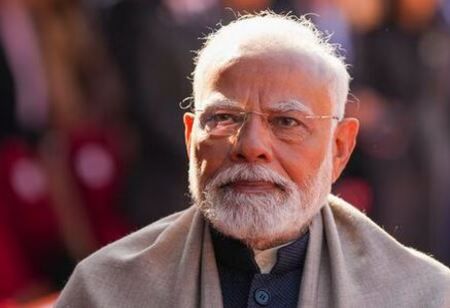
Modi to Hold Bilateral Meet With Putin, SCO's Address Plenary Session


Prime Minister Narendra Modi is poised to present India’s statement at the plenary session of the Shanghai Cooperation Organisation (SCO) summit in Tianjin today. After this, he will engage in a bilateral discussion with Russian President Vladimir Putin.
The meeting between Modi and Putin carries considerable importance. It occurs under pressure from the Trump administration on New Delhi to reduce its imports of Russian crude oil, and only weeks after Washington imposed heavy tariffs on Indian exports. This marks their first face-to-face meeting since October 2024, when they conversed during the BRICS summit in Kazan.
New Delhi has been aiming to recalibrate its trade relations with Moscow. Even though Russia is India’s fourth-largest trading partner, the trade deficit heavily favors Russia. India seeks to boost exports of pharmaceuticals, agricultural products, and textiles, and has requested Moscow to remove non-tariff barriers that limit access for Indian products.
Also Read: Floriculture: Signalling a Blooming Tomorrow for the Indian Economy
Energy issues will also be crucial in their discussions. Foreign Minister S Jaishankar talked about cooperation in Moscow on August 22, which included joint extraction initiatives in the Russian Far East and the Arctic shelf.
National Security Adviser Ajit Doval also visited Russia earlier in August. Reports indicate that President Putin is expected to visit India in December for the annual India-Russia summit.
On Sunday, Modi engaged in bilateral discussions with Chinese President Xi Jinping, marking their first meeting since Kazan last year.
Both leaders expressed satisfaction with the positive movement and steady advancement in their bilateral relations, emphasizing that India and China are “development partners, not rivals.”
They agreed that “differences should not evolve into disputes” and highlighted the need for stability to promote economic growth and development in both nations, as well as for broader stability in Asia.
Modi stressed the significance of “peace and tranquillity in border regions” as a basis for enhancing overall relations. The two leaders expressed contentment with the disengagement achieved the previous year and the ongoing tranquility along the border. They also endorsed their Special Representatives' efforts, who convened earlier this month to further discussions on the boundary issue.
Also Read: Inimitable Indian Traditional Art and Handicrafts Increasing Global Demand
Economic connections were a primary focus. Both parties discussed establishing a “political and strategic direction” to expand bilateral trade and investment relationships and to mitigate the trade deficit. They also agreed to enhance connections between people, including increasing direct flights, simplifying visa processes, and facilitating cultural exchanges like the Kailash Manasarovar Yatra.
In Tianjin, Modi’s schedule also included a bilateral meeting with Myanmar’s acting President and military chief, Senior General Min Aung Hlaing. The Prime Minister emphasized that India places great importance on its relationship with Myanmar as part of its “Neighbourhood First,” “Act East,” and Indo-Pacific strategies. The two leaders reviewed development cooperation, defense and security relations, border management, and cross-border trade.